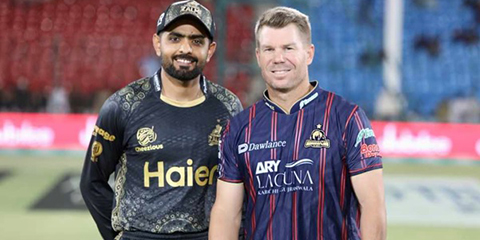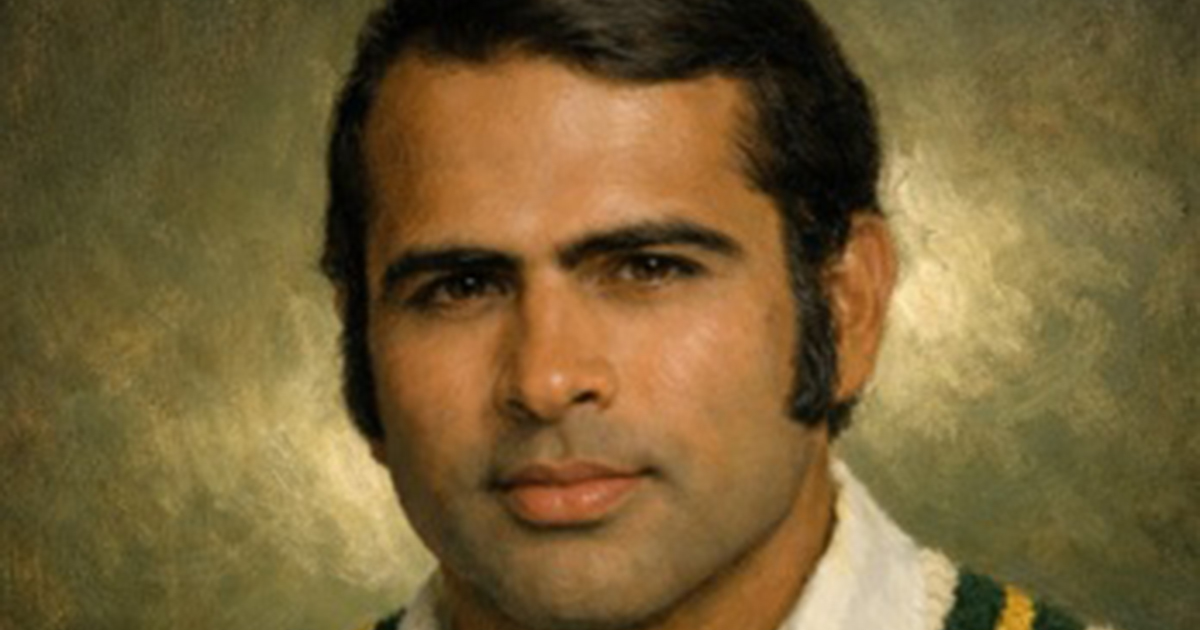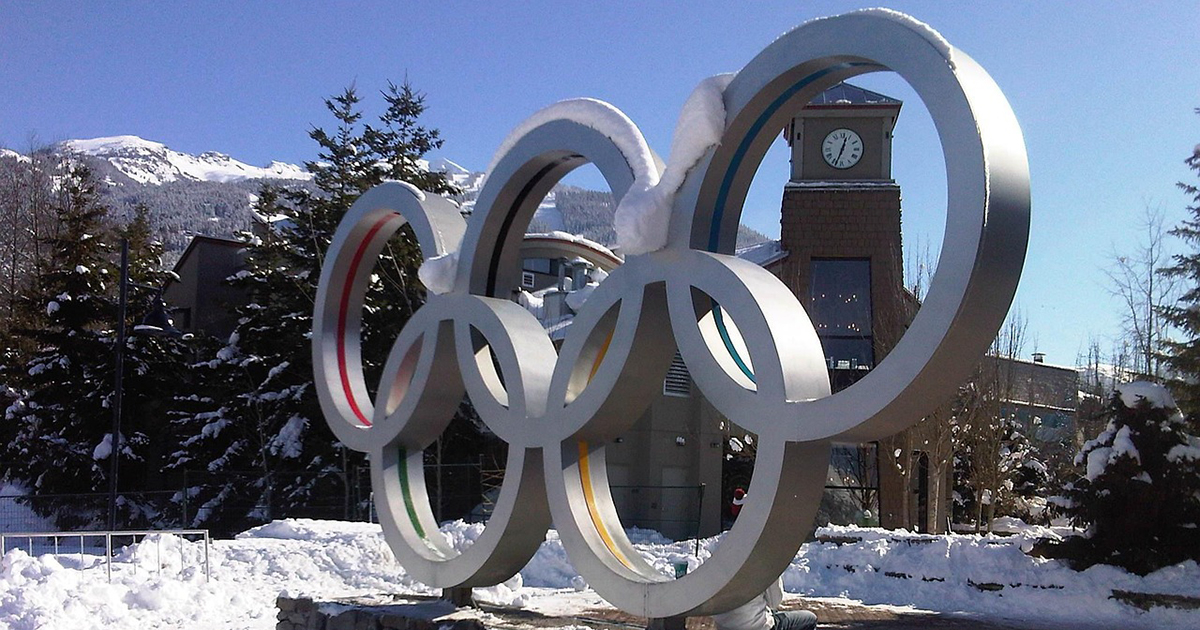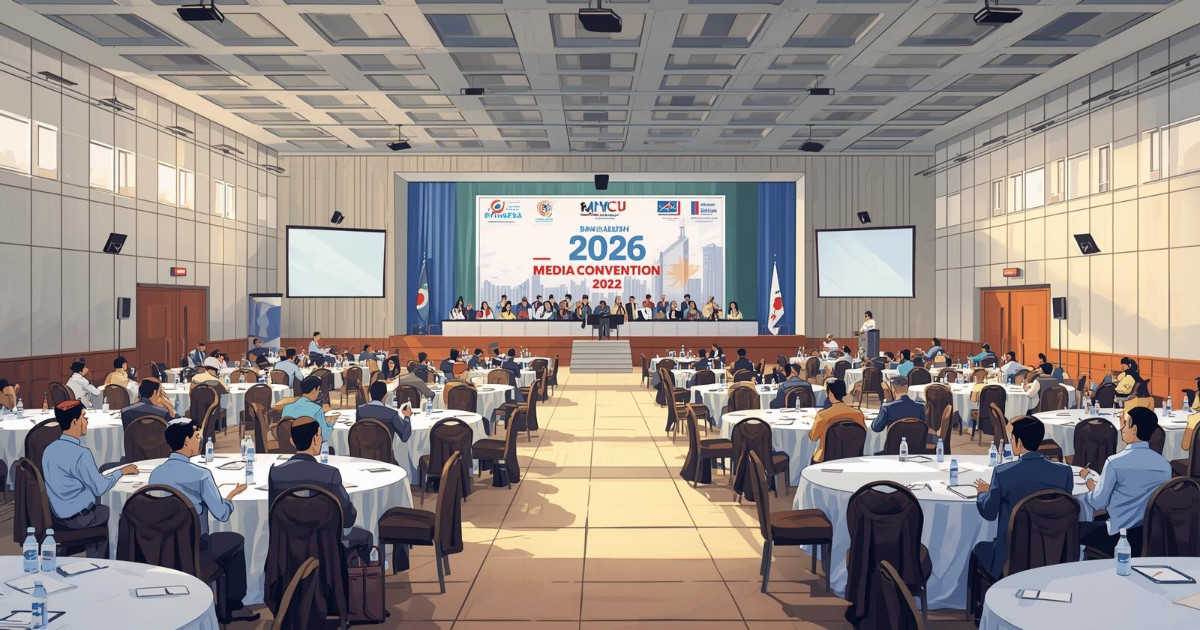The PSL paradox: pageantry or progress?
JournalismPakistan.com | Published: 22 April 2025 | Dr. Nauman Niaz (TI)
Join our WhatsApp channel
The article examines the evolution of the Pakistan Super League (PSL) from a symbol of cricketing resurgence to facing decline. It discusses challenges in governance, marketing, and the need for reinvention to regain its former glory.Summary
ISLAMABAD- The Pakistan Super League was not just a cricket tournament. It was a symbol of defiance, resurgence, and a battered cricketing nation asserting that it still mattered in the global imagination. It arrived when all else was receding. It shimmered when the floodlights of our international relevance flickered. It gave us colour in the time of monochrome. And yet, now, it threatens to become something altogether different, a relic, still talking in the language of rebirth but moving with the gait of something quietly withering.
We don’t mourn decline in Pakistan. We decorate it. We clothe it in ornate press releases and hope no one notices the sagging skin beneath. The PSL, once an act of rebellion against our decay, now feels like an institution in denial, confusing motion for movement, noise for resonance.
Atif Rana, owner and CEO of the Lahore Qalandars, a delightful character, congenial, with his sharp tongue and streetwise savviness, becomes the perfect metaphor for where we are. Too clever by half. He defends the inclusion of faded internationals and half-baked stars with a wink and a sneer, forgetting that behind the performance is a league slowly losing its relevance. The PSL is beginning to feel like a school reunion where everyone’s talking about what they used to be. It was supposed to be about the next generation. Instead, it’s become a haven for the past.
Ali Tareen owner of the most expensive franchise Multan Sultans and it is no surprise it is him, cut through the bluster with a clarity that is increasingly rare in our cricketing discourse. You can chant ‘Dil Se’ as often as you want, but a heartbeat doesn’t bring back the dead. The problem with marketing slogans is that they rarely hide hollow cores. Empty boasts echo louder when the stadiums don’t.
No one disputes that the PSL has offered a stage to players. But the narrative, that PSL created stars like Shaheen Shah Afridi, Fakhar Zaman, Saim Ayub is a distortion we have come to accept in our rush to canonise. Shaheen was already a part of the PCB pathways, had represented Pakistan at a junior level starting from U 16s had eight wickets on debut in first-class cricket before the league’s lights found him.
Fakhar represented Pakistan Navy before joining the Lahore Qalandars. Saim Ayub has existed in the long, thankless corridors of domestic cricket for years. These aren’t stories of discovery. They’re stories of progression and to misrepresent them is to deny the structures that still barely hold our cricket together. Yes, Haris Rauf, yes Mohammad Haris. Zaman Khan, too, in fits and flashes. And yes, Lahore’s Player Development Programme is a burst of genuine originality in a league too often reliant on borrowed inspiration. But to claim these handfuls as harvests is to forget how barren the fields remain elsewhere.
Franchise leagues were never supposed to be talent factories. They are carnivals. They are parades. They are the fireworks, not the furnace. They were meant to exhibit, not engineer. That is what the county system is for, what the PCB’s creaking but persistent ladder still tries to do.
In its early days, the PSL offered the rarest thing in Pakistan cricket: cohesion. It felt like something bigger than the sum of its parts, a coalition of fans, broadcasters, boards, and brands. It had an energy that felt infectious. For a few seasons, it even made the other leagues look dated. But that was a long time ago.
The decline hasn’t been sudden. It’s been slow, disguised by confetti and loud music. Other leagues. SA20, SPL, BPL, ILT20 have overtaken it not just in razzmatazz, but in relevance. The PSL, despite its earnest beginnings, now feels like a story being retold too often, too loudly, in a room that’s slowly emptying. And perhaps that’s the saddest part. It isn’t failing because it didn’t work. It’s faltering because those at the helm refuse to see that what once worked now doesn’t. There is no shame in reinvention, only in stubbornness.
The way forward requires less spin and more soul. The draft system, once innovative, now feels archaic. Open it up. Allow auctions. Remove artificial acquisition caps. Let the franchises dream again. Let the PCB become a facilitator, not a gatekeeper. Let the PSL breathe. Because at its best, the PSL reminded us that Pakistan, for all its chaos and cynicism, could still produce something world-class. At its best, it mirrored that most Pakistani of truths: that beauty can emerge even from dysfunction.
But that only happens when we acknowledge the cracks. Cricket is a game of renewal. Pakistan is a country of survival. Somewhere between the two lies the future of the PSL, if only those in charge are willing to step out of the past.
The cricketing flame, once lit on a dusky February evening in Dubai, now flickers with a less confident hue. What began as a promise, a torch to light the routes of Pakistan’s cricketing revival, the Pakistan Super League, finds itself, in its tenth year, wrapped in a curious melancholy. Not extinguished, but wavering; not forgotten, but faltering.
The PSL, in its conception, was more than a tournament. It was a symbol, a rebuttal to isolation, an answer to silence. Cricket in Pakistan had been locked behind gates and guarded stadiums for years after Lahore’s haunting morning in 2009. And so the PSL was to be its resurrection, a league that would summon back the stars, bring music to quiet stands, and, in its essence, reunite a nation with its favourite son: cricket. And for a while, it did. Crowds gathered in Dubai and Sharjah, then in Lahore and Karachi, as if answering a long-awaited call to prayer. The stadiums breathed again. The jerseys were worn with pride. Young boys learnt new names, Peshawar Zalmi, Lahore Qalandars, Multan Sultans, Karachi Kings, Quetta Gladiators and Islamabad United inscribed on their hearts like family crests. There was Fakhar Zaman’s abandon, Babar Azam’s poise, Shaheen Shah Afridi fury, and Rizwan’s quiet faith. For a few seasons, it was beautiful. But beauty, like form, is often fleeting.
Now, as the PSL enters its tenth year, it does so with the weariness of an ageing maestro still expected to produce a symphony. The signs of decline are not dramatic, but they are undeniable: thinning crowds, a stale format, a growing air of commercial fatigue. One senses a league not evolving, but simply recurring, an annual procession rather than a cultural event. The stadiums, those once-riotous fortresses of song and banner, now seem to yawn. Spectators, like disillusioned lovers, turn away too easily. The freshness is gone, and with it, the sense of occasion. The PSL has begun to resemble the shadow of its former self: familiar, yet not stirring.
Part of this quiet decay owes itself to a certain malaise in structure. The league, over the years, has struggled with governance that is both bureaucratic and factional. Franchises bicker, broadcasters bargain, and sponsors, once eager suitors, now convey their doubts. The cricket, though still technically sound, has become predictable. The flair that once defied logic has now been reduced to formula. And then, of course, came the surrogate fog.
What was once subtle has now become the storm: the infiltration of betting companies through surrogate advertising, gaming platforms that parade as news sites or lifestyle hubs, yet offer the same dark trade. It was perhaps inevitable, given the global rise of sports gambling and the increasingly porous borders of regulation. But in Pakistan, a nation still shackled by conservative principle and fragile authority, it arrived with the noise of scandal.
Billboards that once bore the heroic silhouettes of Shahid Afridi and Mohammad Amir were replaced by ambiguous logos and dubious domains. The soul of the PSL, built on patriotism and youth, now stood compromised. Questions were asked in Parliament, fatwas were whispered in drawing rooms, and the very ethics of the league were thrown into doubt. When the cricketer becomes a commercial, and the commercial a moral hazard, then cricket itself feels like collateral.
What was most damning, however, was not the act, but the silence that followed it. The PCB, stunned into inaction, offered platitudes. The franchises turned evasive. And the audience, the faithful, the loyal, the romantic, felt betrayed. Now, as we approach a decade since that first hopeful ball was bowled in the Emirates, one must ask: what now?
Can the PSL rediscover its voice? Can it, like an ageing aesthetician, find new music in familiar metre? Or will it become what so many leagues across the globe already have, a franchise fixture stripped of fervour, a money-making machine moving without meaning? Not even money-making unless a dynamic process driven model is introduced. Hope, as always in cricket, lingers.
There are words of reform, of a recalibration of intent. New blood in administration, a renewed focus on local heroes, an introspective glance at broadcasting rights and matchday experience. Perhaps it can be done. Perhaps Pakistan cricket, which has defied predictions for decades, can once again produce a miracle. But it will take more than strategy. It will require soul. For the PSL was never meant to be just a tournament. It was a cultural letter, addressed to the dreams of a nation long deprived of celebration. If it is to matter again, it must remember its reason for being, not to sell, but to stir; not to profit, but to belong. Until then, we, the watchers from a distance, like old lovers who once stood in the stands of Lahore, shall wait. Not with cynicism, but with longing. For the echo of a crowd. For a six that means something. For a league that once, and perhaps still can, matter. And in that wait, there remains a kind of grace. Illusions won’t help, pragmatism will.
Dr. Nauman Niaz is the Sports Editor at JournalismPakistan.com. He is a civil award winner (Tamagha-i-Imtiaz) in Sports Broadcasting and Journalism and a regular cricket correspondent, covering 54 tours and three ICC World Cups. He has written over 3500 articles, authored 15 books, and is the official historian of Pakistan cricket (Fluctuating Fortunes IV Volumes – 2005). His signature show, Game On Hai, has received the highest ratings and acclaim.
پی ایس ایل کا تضاد: دکھاوا یا ترقی؟
اسلام آباد — پاکستان سپر لیگ صر٠ایک کرکٹ ٹورنامنٹ Ù†Ûیں تھیÛ" ÛŒÛ Ø¨ØºØ§ÙˆØª Ú©ÛŒ علامت تھی، ایک نئی زندگی Ú©ÛŒ نوید، ایک زخم Ø®ÙˆØ±Ø¯Û Ú©Ø±Ú©Ù¹ قوم Ú©ÛŒ پکار Ú©Û ÛÙ… اب بھی عالمی منظرنامÛ' میں اÛÙ… ÛیںÛ" جب Ûر طر٠اندھیرا چھا رÛا تھا، ÛŒÛ Ø±ÙˆØ´Ù†ÛŒ بنیÛ" جب Ûماری بین الاقوامی اÛمیت Ú©ÛŒ Ù„ÙŽÙˆ مدھم ÛÙˆ رÛÛŒ تھی، اس Ù†Û' Ûمیں رنگوں سÛ' بھر دیاÛ" لیکن اب، ÛŒÛ Ú©Ø³ÛŒ اور ÛÛŒ Ø´Ú©Ù„ میں ڈھلتی دکھائی دیتی ÛÛ'—ایک ایسی باقیات جو اب بھی اØیاء Ú©ÛŒ زبان بولتی ÛÛ'ØŒ مگر ایک خاموش زوال Ú©Û' انداز میں Ø¢Ú¯Û' بÚ'Ú¾ رÛÛŒ ÛÛ'Û"
پاکستان میں ÛÙ… زوال کا ماتم Ù†Ûیں کرتÛ'ØŒ اسÛ' سجاتÛ' ÛیںÛ" خوبصورت الÙاظ میں لپیٹ کر پیش کرتÛ' Ûیں ØªØ§Ú©Û Ú©ÙˆØ¦ÛŒ اندر Ú©ÛŒ کمزوری Ù†Û Ø¯ÛŒÚ©Ú¾ پائÛ'Û" Ù¾ÛŒ ایس ایل، جو کبھی Ûماری تباÛÛŒ Ú©Û' خلا٠بغاوت کا ایک عمل تھا، اب ایک ایسی روایت بن Ú†Ú©ÛŒ ÛÛ' جو خود Ùریبی کا شکار ÛÛ'Û" Øرکت Ú©Ùˆ ترقی سمجھنا، شور Ú©Ùˆ اثر Ú©ÛناÛ"
لاÛور قلندرز Ú©Û' مالک اور سی ای او، عاط٠رانا، ایک دلچسپ کردار Ûیں—شوخ مزاج، تیز زبان، اور گلیوں Ú©ÛŒ Ø°Ûانت سÛ' بھرپورÛ" ÙˆÛ Ø¢Ø¬ Ú©Û' Ù¾ÛŒ ایس ایل Ú©ÛŒ مکمل علامت بن Ú†Ú©Û' Ûیں: آدھی عقل، پورا اعتمادÛ" ÙˆÛ Ù¾ÙرانÛ' اور گمنام غیرملکی کھلاÚ'یوں Ú©ÛŒ شمولیت کا دÙاع کرتÛ' Ûیں جیسÛ' مذاق کر رÛÛ' Ûوں، بھول جاتÛ' Ûیں Ú©Û Ø§ØµÙ„ میں ایک لیگ اپنی اÛمیت Ú©Ú¾Ùˆ رÛÛŒ ÛÛ'Û" Ù¾ÛŒ ایس ایل اب ایک اسکول ری یونین جیسا لگتا ÛÛ' جÛاں سب ماضی Ú©ÛŒ باتیں کرتÛ' ÛیںÛ" ÛŒÛ Ø§Ú¯Ù„ÛŒ نسل Ú©Û' Ù„ÛŒÛ' Ûونا چاÛÛŒÛ' تھا، مگر اب ÛŒÛ Ù…Ø§Ø¶ÛŒ Ú©ÛŒ Ù¾Ù†Ø§Û Ú¯Ø§Û Ø¨Ù† چکا ÛÛ'Û"
Ù…ÛÙ†Ú¯ÛŒ ترین Ùرنچائز ملتان سلطانز Ú©Û' مالک علی ترین، جن کا ÙˆØ§Ø¶Ø Ø§Ù†Ø¯Ø§Ø² نایاب Ûوتا جا رÛا ÛÛ'ØŒ صا٠گوئی سÛ' Ú©Ú'ÙˆÛŒ باتیں کر جاتÛ' ÛیںÛ" جتنا مرضی 'دل سÛ'' کا Ù†Ø¹Ø±Û Ù„Ú¯Ø§Ø¦ÛŒÚºØŒ دل Ú©ÛŒ دھÚ'Ú©Ù† Ù…Ø±Ø¯Û Ø¬Ø³Ù… Ú©Ùˆ واپس Ù†Ûیں لاتیÛ" مارکیٹنگ Ú©Û' نعرÛ' Ú©Ú¾ÙˆÚ©Ú¾Ù„Û' پن Ú©Ùˆ Ù†Ûیں چھپا سکتÛ'Û"
کسی Ú©Ùˆ انکار Ù†Ûیں Ú©Û Ù¾ÛŒ ایس ایل Ù†Û' کھلاÚ'یوں Ú©Ùˆ پلیٹ Ùارم دیاÛ" لیکن ÛŒÛ Ú©Ûنا Ú©Û Ù¾ÛŒ ایس ایل Ù†Û' شاÛین Ø´Ø§Û Ø¢Ùریدی، Ùخر زمان، یا صائم ایوب جیسÛ' ستارÛ' تخلیق Ú©ÛŒÛ'ØŒ Øقیقت سÛ' انکار ÛÛ'Û" شاÛین Ù¾ÛÙ„Û' ÛÛŒ Ù¾ÛŒ سی بی Ú©Û' pathways میں تھÛ'ØŒ انڈر 16 سÛ' Ù„Û' کر Ù¾ÛÙ„Û' Ùرسٹ کلاس میچ میں آٹھ وکٹیں Ù„Û' Ú†Ú©Û' تھÛ'Û"
Ùخر پاکستان نیوی Ú©Û' Ù„ÛŒÛ' کھیل Ú†Ú©Û' تھÛ'ØŒ اور صائم ایوب گھریلو کرکٹ Ú©Û' تھکÛ' ÛوئÛ'ØŒ بÛ'اعتنا راÛداریوں میں برسوں سÛ' موجود تھاÛ" ÛŒÛ Ø¯Ø±ÛŒØ§Ùت Ú©ÛŒ Ù†Ûیں، تسلسل Ú©ÛŒ Ú©Ûانیاں ÛیںÛ" Ûاں، Øارث رؤÙØŒ Ù…Øمد Øارث، زمان خان—کبھی کبھی—اور لاÛور کا پلیئر ڈیولپمنٹ پروگرام ضرور انوکھا ÛÛ'Û" مگر ان چند مثالوں Ú©Ùˆ کامیابی Ú©ÛŒ Ùصل Ú©Ûنا باقی میدانوں Ú©ÛŒ ویرانی سÛ' نظریں چرانا ÛÛ'Û"
Ùرنچائز لیگیں کھلاÚ'ÛŒ بنانÛ' Ú©ÛŒ Ùیکٹریاں Ù†Ûیں ÛوتیںÛ" ÛŒÛ Ù…ÛŒÙ„Û Ûوتی ÛیںÛ" ÛŒÛ Ø¬Ø´Ù† ÛیںÛ" ÛŒÛ Ø¢ØªØ´Ø¨Ø§Ø²ÛŒ Ûیں، بھٹی Ù†ÛیںÛ" اصل تربیت تو کاؤنٹی سسٹم یا Ù¾ÛŒ سی بی کا پرانا مگر قائم رÛÙ†Û' والا سیÚ'Ú¾ÛŒ نظام کرتا ÛÛ'Û"
Ù¾ÛŒ ایس ایل Ú©Û' ابتدائی دنوں میں، ÛŒÛ Ø§ØªØاد Ú©ÛŒ ایک نایاب مثال تھاÛ" پرستار، براڈکاسٹر، بورڈ اور برانڈز—سب ایک ص٠میں تھÛ'Û" اس میں ایک انوکھا جوش تھاÛ" Ú©Ú†Ú¾ عرصÛ' تک، اس Ù†Û' دوسری لیگز Ú©Ùˆ پرانا بنا دیاÛ" مگر ÙˆÛ ÙˆÙ‚Øª بیت چکا ÛÛ'Û"
زوال یکدم Ù†Ûیں آیاÛ" Ø¢ÛØ³ØªÛ Ø¢ÛŒØ§ØŒ Ú†Ù…Ú© دمک اور شور میں Ú†Ú¾Ù¾ کرÛ" اب SA20ØŒ SPLØŒ BPLØŒ ILT20 صر٠رنگینیاں ÛÛŒ Ù†Ûیں، معنویت میں بھی Ø¢Ú¯Û' Ù†Ú©Ù„ Ú†Ú©Û' ÛیںÛ" Ù¾ÛŒ ایس ایل، اب ایک بار بار سنائی جانÛ' والی Ú©Ûانی بن چکا ÛÛ'ØŒ ایک کمرÛ' میں جس سÛ' لوگ خاموشی سÛ' Ù†Ú©Ù„ رÛÛ' ÛیںÛ"
Ø¢Ú¯Û' بÚ'Ú¾Ù†Û' Ú©Û' Ù„ÛŒÛ' اب دکھاوÛ' سÛ' Ø²ÛŒØ§Ø¯Û Ø¬Ø°Ø¨Û' Ú©ÛŒ ضرورت ÛÛ'Û" ڈراÙÙ¹ سسٹم، جو کبھی جدت Ú©ÛŒ علامت تھا، اب پرانا لگتا ÛÛ'Û" نیلامی کا Ø±Ø§Ø³ØªÛ Ø§Ù¾Ù†Ø§Ø¦ÛŒÚºÛ" پابندیاں ختم کریںÛ" Ùرنچائزز Ú©Ùˆ خواب دیکھنÛ' دیںÛ" Ù¾ÛŒ سی بی ایک Ù†Ú¯Ûبان Ù†Ûیں، ایک معاون بنÛ'Û" Ú©ÛŒÙˆÙ†Ú©Û Ø§Ù¾Ù†Û' بÛترین وقت میں، Ù¾ÛŒ ایس ایل Ûمیں ÛŒÛ ÛŒØ§Ø¯ دلاتا تھا Ú©Û Ù¾Ø§Ú©Ø³ØªØ§Ù†ØŒ اپنی تمام خرابیوں اور اÙراتÙری Ú©Û' باوجود، Ú©Ú†Ú¾ عالمی معیار کا تخلیق کر سکتا ÛÛ'Û"
مگر ÛŒÛ ØªØ¨Ú¾ÛŒ ممکن ÛÛ' جب ÛÙ… دراÚ'یں تسلیم کریںÛ"
کرکٹ ایک تجدید کا کھیل ÛÛ'Û" پاکستان ایک بقاء Ú©ÛŒ سرزمینÛ" ان دونوں Ú©Û' بیچ شاید Ù¾ÛŒ ایس ایل کا مستقبل چھپا ÛÛ'ØŒ Ø¨Ø´Ø±Ø·ÛŒÚ©Û ÙÛŒØµÙ„Û Ø³Ø§Ø² ماضی سÛ' باÛر نکلنÛ' Ú©Ùˆ تیار ÛÙˆÚºÛ"
ÙˆÛ Ø´Ø¹Ù„ÛØŒ جو Ùروری Ú©ÛŒ ایک شام دبئی میں روشن Ûوا تھا، اب مدھم ÛÙˆ چکا ÛÛ'Û" Ù¾ÛŒ ایس ایل، جو امید Ú©ÛŒ مشعل تھی، اب ایک عجیب اداسی میں لپٹا Ûوا ÛÛ'Û" بجھا Ù†Ûیں، مگر Ûچکچاتا ضرور ÛÛ'Û"
Ù¾ÛŒ ایس ایل، ایک Ù…Ù‚Ø§Ø¨Ù„Û Ù†Ûیں، ایک ثقاÙتی خط تھا، ایک جشن سÛ' Ù…Øروم قوم Ú©Û' خوابوں Ú©Û' نامÛ" اگر ÛŒÛ Ø¯ÙˆØ¨Ø§Ø±Û Ø§ÛÙ… بننا چاÛتا ÛÛ'ØŒ تو اسÛ' اپنی وجÛ٠وجود یاد رکھنی ÛÙˆÚ¯ÛŒ—بیچنÛ' Ú©Û' Ù„ÛŒÛ' Ù†Ûیں، جگانÛ' Ú©Û' Ù„ÛŒÛ'Û" Ù†Ùع Ú©Û' Ù„ÛŒÛ' Ù†Ûیں، تعلق Ú©Û' Ù„ÛŒÛ'Û"
تب تک، ÛÙ…ØŒ ÙاصلÛ' پر بیٹھÛ' پرانÛ' عاشقوں Ú©ÛŒ طرØØŒ انتظار کریں Ú¯Û'Û" مایوسی سÛ' Ù†Ûیں، Ø¨Ù„Ú©Û Ø§Ùمید سÛ'Û" کسی گونجتÛ' ÛوئÛ' مجمع کی، ایک یادگار Ú†Ú¾Ú©Û' کی، ایک ایسی لیگ Ú©ÛŒ جو واقعی اÛÙ… تھی، اور شاید Ø¯ÙˆØ¨Ø§Ø±Û Ø¨Ù† سکتی ÛÛ'Û"
اور اس انتظار میں، ایک خاص سی شراÙت Ú†Ú¾Ù¾ÛŒ ÛÛ'Û" دھوکÛ' Ù†Ûیں، Øقیقت سÛ' نجاتÛ"
ڈاکٹر نعمان نیاز جرنلزم پاکستان ڈاٹ کام Ú©Û' اسپورٹس ایڈیٹر ÛیںÛ" ÙˆÛ Ø§Ø³Ù¾ÙˆØ±Ù¹Ø³ براڈکاسٹنگ اور جرنلزم میں سول ایوارڈ (ØªÙ…ØºÛ Ø§Ù…ØªÛŒØ§Ø²) Ú©Û' وصول Ú©Ù†Ù†Ø¯Û Ûیں اور Ø¨Ø§Ù‚Ø§Ø¹Ø¯Û Ú©Ø±Ú©Ù¹ Ù†Ø§Ù…Û Ù†Ú¯Ø§Ø± Ûیں، جنÛÙˆÚº Ù†Û' 54 ٹورز اور تین آئی سی سی ورلڈ Ú©Ù¾ کا اØØ§Ø·Û Ú©ÛŒØ§ ÛÛ'Û" انÛÙˆÚº Ù†Û' 3500 سÛ' زائد مضامین Ù„Ú©Ú¾Û' Ûیں، 15 کتابیں تصنی٠کی Ûیں، اور ÙˆÛ Ù¾Ø§Ú©Ø³ØªØ§Ù† کرکٹ Ú©Û' سرکاری مورخ ÛیںÛ" ان کا مشÛور شو، "گیم آن ÛÛ'"ØŒ Ù†Û' سب سÛ' Ø²ÛŒØ§Ø¯Û Ø±ÛŒÙ¹Ù†Ú¯Ø² اور تعریÙیں Øاصل Ú©ÛŒ ÛیںÛ"
KEY POINTS:
- PSL was once a beacon of hope for Pakistani cricket.
- The league now struggles with relevance amid global competition.
- Critics highlight governance and marketing issues affecting the PSL.
- The narrative around star creation in PSL often misrepresents player development.
- Reform is urgently needed to reinvigorate the league's future.

























